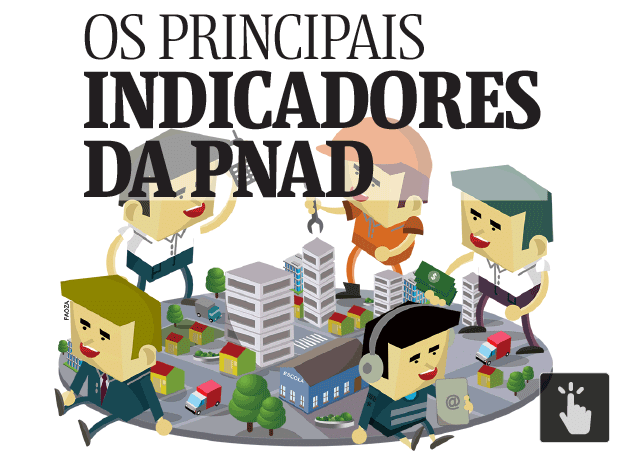Latest Photo Galleries
Brazilian Markets
17h39 Bovespa |
+0,74% | 125.124 |
16h43 Gold |
0,00% | 117 |
17h00 Dollar |
-0,97% | 5,1993 |
16h30 Euro |
+0,49% | 2,65250 |
ADVERTISING
Under Dilma's Government, Inequality Reduction Halts in Brazil
09/19/2014 - 09h36
Advertising
MARIANA CARNEIRO
FROM SÃO PAULO
PEDRO SOARES
FROM RIO
Inequality reduction, ongoing since the mid-1990s, has halted in the past three years. The best known thermometer for wealth concentration, the Gini index, registered a slight worsening, from 0.496 in 2012 to 0.498 in 2013. Since 2011, experts say, the indicator virtually does not go anywhere.
It is early to say that inequality is increasing again in Brazil. But, for experts, it shows a exhaustion of the mechanisms that have produced positive results in recent years.
The labor market improvement, especially for people with less education, the increase in work formalization and the continuous increase in access to education are factors that help explain the better distribution of income in the country in the last two decades.
Cash transfer programs, such as Bolsa Familia, also contributed, by helping raise the income of the most needed.
The problem is that the job market stagnated. Since 2011, economic growth has lost steam and started cooling, which had already affected the industry, and is also now affecting businesses and services. The minimum wage, which is adjusted according to GDP growth, began to rise less in 2012 and 2013.
| Editoria de Arte/Folhapress | ||
 |
||
"The low GDP is bad for everyone, but it hurts more less skilled workers, more vulnerable to job losses. Unemployed, their income drops to zero from one month to the next," says Gabriel Ulyssea, from the IPEA.
Income at the top of the pyramid (the richest 10%) increased a lot faster than with the poorest, last year.
For the president of IBGE, Wasmália Bivar, raising the Gini index does not correspond to an interruption of the improvement process of income distribution, but rather means "stability".
"We need to think now in other policies to make the country move forward. Brazil, despite the great improvement in recent years, is still a very unequal country."
One focus, she says, should be with the population between the ages of 15 to 17 –15% of them do not attend school. Those who work with at this age have low income (about minimum wage). And if they do not study, this may perpetuate the reality of low wages.
Improving education is considered the main solution so that the country can start growing again and have a better income distribution.
Translated by SIMONE PALMA



